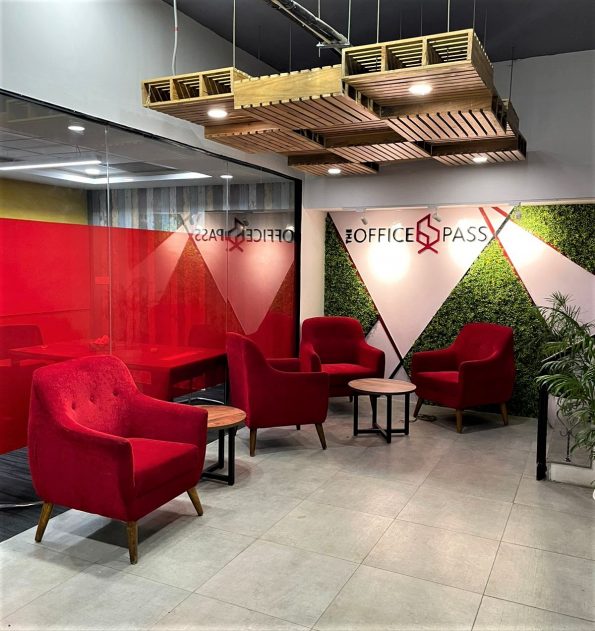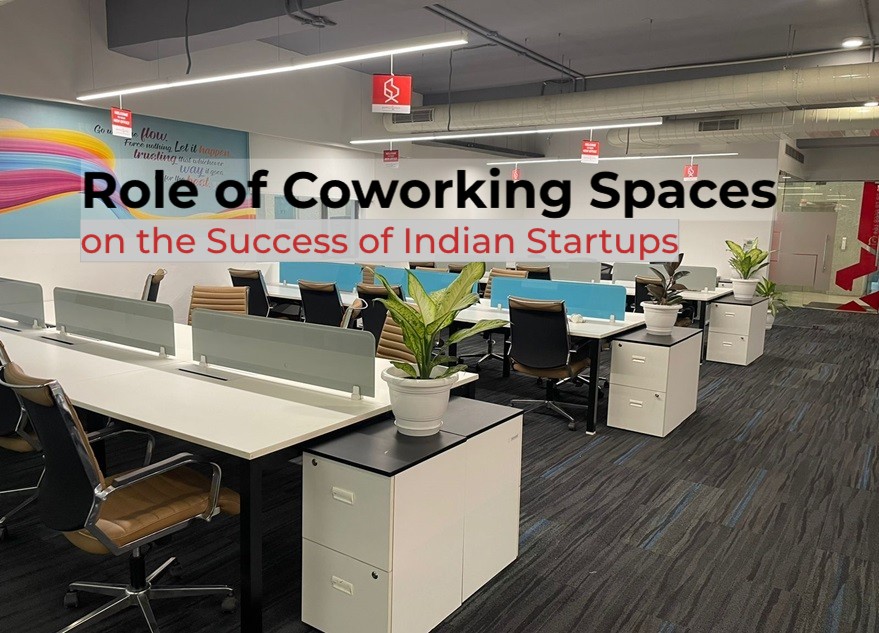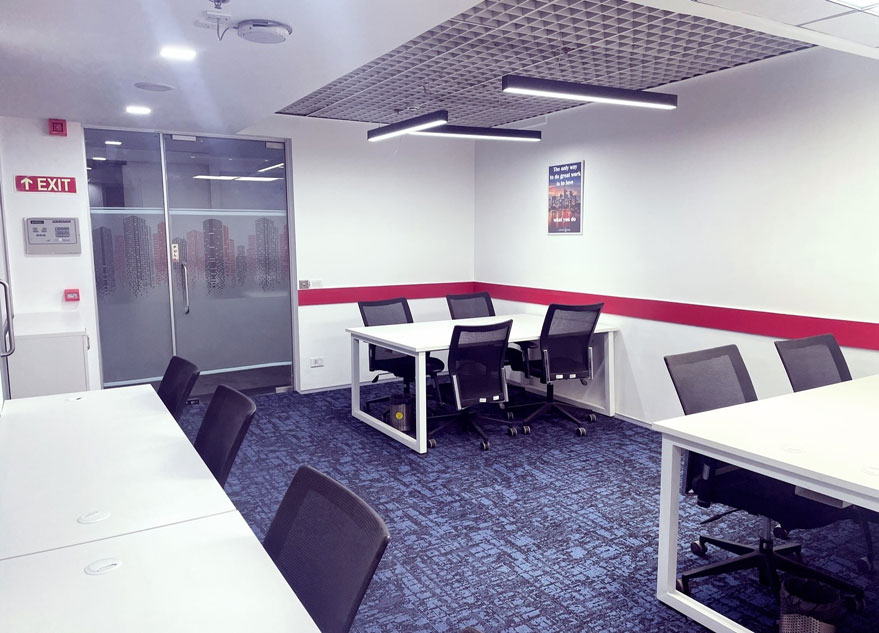Goods and Services Tax (GST) and Tax Deducted at Source (TDS) filing for small and medium businesses in India is not a child’s play. At the same time, it is not that tough provided you know exactly what, how, and when to fill these for your small or medium business in India. Please note that tax regulations may change, so it’s crucial to stay updated with the latest rules and regulations. So, join us as we are here to enlighten you with the complete GST & TDS filing guide for Indian small and medium businesses.
💡 Are you looking for Coworking space in Gurgaon, Noida or Delhi? We are just a call away.
Call Now: 08999 828282
Goods and Services Tax (GST) Filing Process
Here is a step-by-step description of how to file Goods and Services Tax (GST) for your company as given below:-
- Registration
- Types of GST
- Invoice and Record Keeping
- Login to the GST Portal
- Filing GST Returns
- Input Tax Credit (ITC)
- E-Way Bills
- Validate and Submit
- Pay the Tax Liability
- File the GST Return

1. Registration
- Small and medium businesses with an annual turnover above the prescribed limit are required to register for GST.
- Obtain a GST identification number (GSTIN) and update business details on the GST portal.
2. Types of GST
- Understand the different types of GST: CGST (Central GST), SGST (State GST), and IGST (Integrated GST).
- Determine the applicable GST rates for your products or services.
3. Invoice and Record Keeping
- Issue GST-compliant invoices with all required details.
- Maintain proper records of all transactions, including purchases and sales.
4. Login to the GST Portal
- Visit the official GST portal to log in. For this, you must use your GSTIN, username, and password
5. Filing GST Returns
- File monthly, quarterly, or annual GST returns based on your business turnover.
- Forms GSTR-1, GSTR-2A, GSTR-3B, and GSTR-9 are commonly used for return filing.
6. Input Tax Credit (ITC)
- Claim input tax credit on eligible purchases.
- Reconcile your purchases with GSTR-2A and rectify any discrepancies.
7. E-Way Bills
- Generate e-way bills for the movement of goods exceeding specified values.
- Ensure compliance with e-way bill rules.
Also Read: How to get GST registered for your company in Delhi-NCR?
8. Validate and Submit
- Ensure to check the details filled in the form for accuracy before submitting it by clicking the ‘Submit’ option
9. Pay the Tax Liability
- Calculate your tax liability and pay the taxes using the electronic credit ledger or electronic cash ledger
10. File the GST Return
- Click on the ‘File Return’ to finish the procedure after paying the tax
- You will receive an Application Reference Number or ARN that will confirm the GST filing
💡 SMBs looking for HR, Marketing, Technology and Funding solutions for their business.
Call Hello Jarvis 994 8000 800
Tax Deducted at Source (TDS) Filing Process:
Have a look at the step-by-step procedure to file TDS for your company as given below:
- TDS Registration
- Deduction of TDS
- Login to the TDS Filing Portal
- TDS Return Filing
- Validate the TDS Return
- TDS Payment
1. TDS Registration
- Obtain a TAN (Tax Deduction and Collection Account Number) for TDS compliance.
2. Deduction of TDS
- Deduct TDS at the specified rates on payments like salary, rent, professional fees, etc.
- Issue TDS certificates (Form 16/16A) to the deductee.
3. Login to the TDS Filing Portal
- Visit the online TDS filing portal or third-party software to submit the TDS returns
- Fill in the details accurately after login
4. TDS Return Filing
- File quarterly TDS returns using forms like 24Q, 26Q, and 27Q.
- Ensure correctness in details like PAN, TDS amount, and other particulars.
5. Validate the TDS Return
- Ensure using the built-in validation utility available at the online TDS filing website to verify the TDS return
6. TDS Payment
- Deposit the deducted TDS amount into the government account.
- Pay on time to avoid interest and penalties.
General Tips for GST and TDS Filling:
- Stay updated with amendments in GST and TDS regulations.
- Use accounting software to streamline the compliance process.
- Regularly reconcile books of accounts with GST returns and TDS filings.
- Seek professional advice for complex transactions and compliance matters.
To sum up, it’s crucial to consult with a tax professional or CA for specific advice tailored to your business’s needs. The regulatory environment can change, and professional guidance ensures accurate compliance.
You can take your small or medium business to new heights by setting it up at The Office Pass (TOP) coworking space located in Delhi and NCR. It is a one-stop platform for anyone looking to boost productivity at work because it incorporates all the essential amenities to offer a perfect work environment to professionals. Contact us for more details at 08999 828282.
FREQUENTLY ASKED QUESTIONS (FAQS):
Question: Who needs to register for GST in India?
Answer: Businesses with an annual turnover exceeding the prescribed limit must register for GST.
Question: What are the types of GST applicable to businesses?
Answer: CGST (Central GST), SGST (State GST), and IGST (Integrated GST) are the types of GST.
Question: How often do businesses need to file GST returns?
Answer: Businesses may need to file GST returns monthly, quarterly, or annually based on their turnover.
Question: What is the Input Tax Credit (ITC) in GST?
Answer: Input Tax Credit (ITC) allows businesses to claim credit for taxes paid on eligible purchases.
Question: What is TAN, and why is it required for TDS filing?
Answer: TAN (Tax Deduction and Collection Account Number) is required for businesses to deduct and remit TDS.
Question: What are some common payments subject to TDS in India?
Answer: Salary, rent, professional fees, and commission are common payments subject to TDS.
Question: How frequently should TDS returns be filed?
Answer: TDS returns are generally filed quarterly.
Question: What is an e-way bill in the context of GST?
Answer: An e-way bill is a document required for the movement of goods exceeding specified values.
Question: How can businesses rectify discrepancies in GST returns?
Answer: Businesses can reconcile purchases with GSTR-2A and rectify discrepancies on the GST portal.
Question: Why is it important for businesses to issue TDS certificates?
Answer: TDS certificates (Form 16/16A) provide proof of TDS deductions and are essential for deductees for filing income tax returns.









